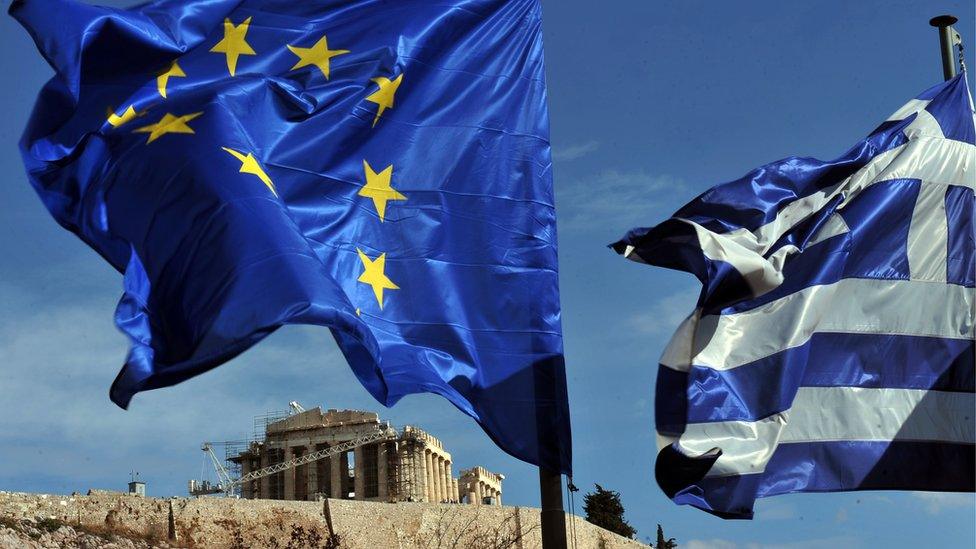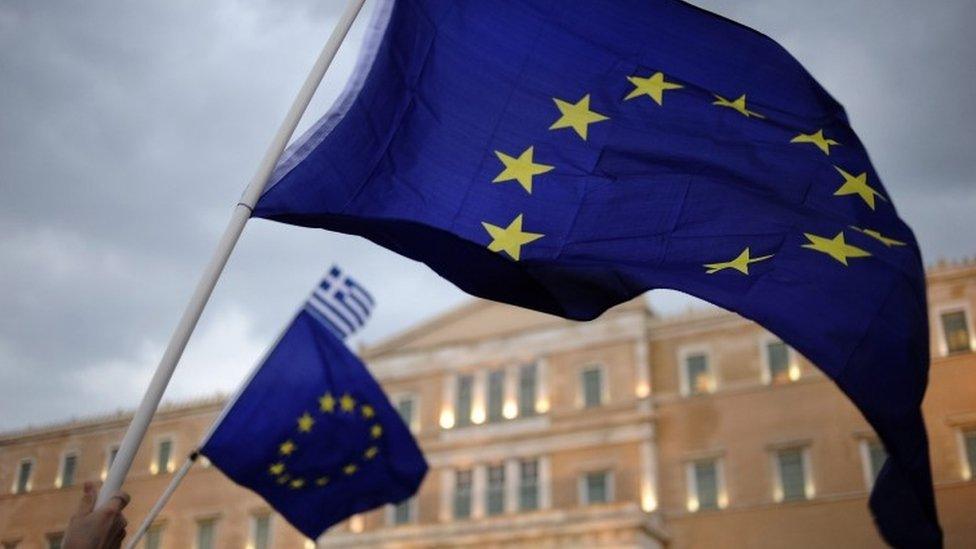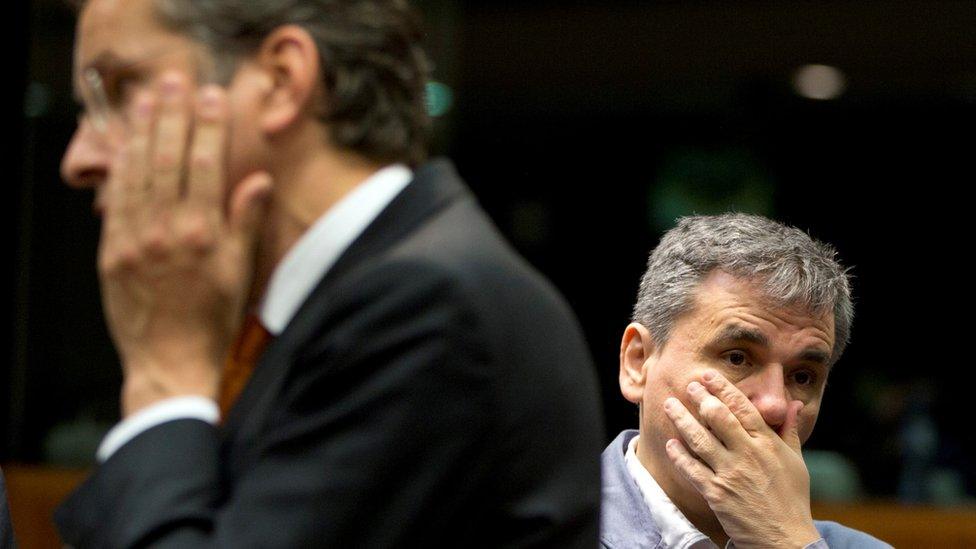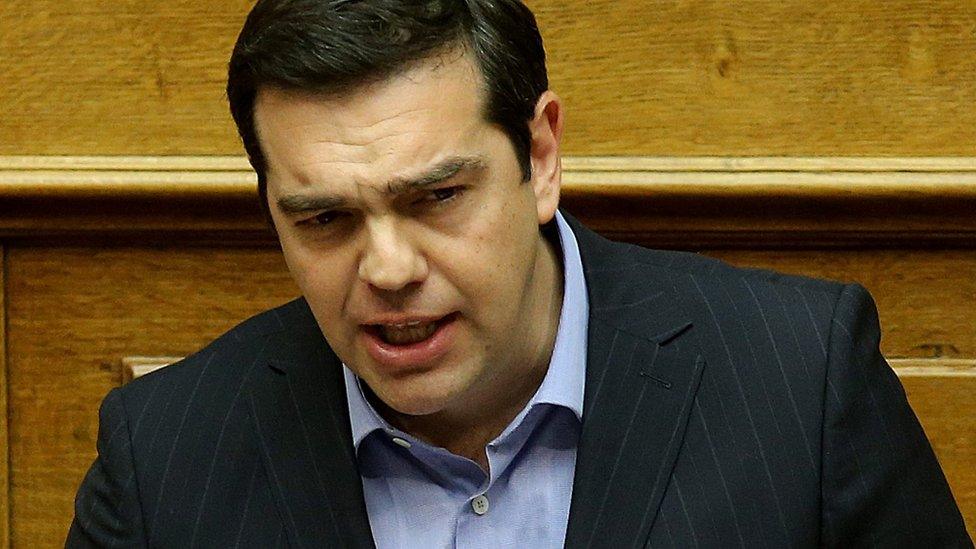Eurozone releases Greece bailout money
- Published

A fresh tranche of money for debt ridden Greece has been approved by the eurozone's bailout fund.
The amount of 7.5bn euros (£5.9bn; $8.4bn) is scheduled to be paid out early next week.
The money is part of a larger deal agreed on in May but depended on a number of reform conditions to be be fulfilled by Athens.
Greece owes its creditors more than €300bn - about 180% of its annual economic output (GDP).
The country is in urgent need of the fresh money from Europe to service two debt payments to the European Central Bank next month.
"This is a welcome breath of oxygen for the Greek economy," the EU's top economic affairs official, Pierre Moscovici, said.
The Luxembourg-based European Stability Mechanism (ESM) said it approved the money to be transferred after Greece's government completed required reforms.
Over the past weeks, the government in Athens pushed through with several reform packages and a plan on long-delayed privatisations.


To cut or not to cut
Eurozone leaders and the International Monetary Fund (IMF) remain at odds over how to move forward with the Greek debt crisis.
"The IMF is not engaged in a programme with Greece," Lagarde told reporters after talks with the eurozone on Thursday.
The international lender said it would not contribute to the latest bailout unless there were concrete plans to cut Athens' massive debt burden.
Last month's deal, external for an overall amount of 10.3bn euros does not reduce the amount Greece will have to repay.
Instead, debt relief will be phased in from 2018, after Germany's general election late next year. Berlin is one of the main opponents to forgiving part of Greece's debt.
As such, the deal was being seen by many as a compromise intended to buy time.
- Published25 May 2016

- Published25 May 2016

- Published9 May 2016
